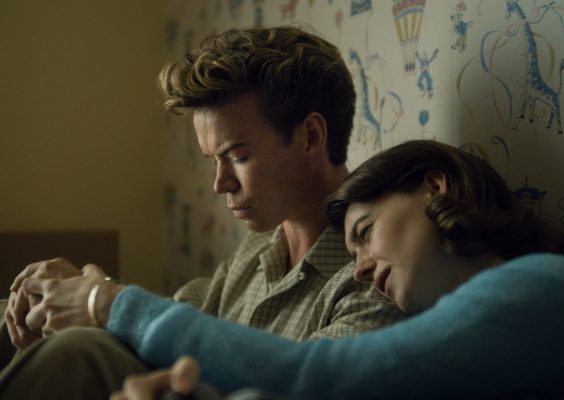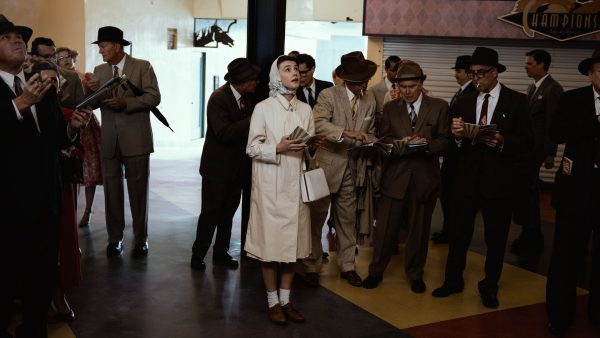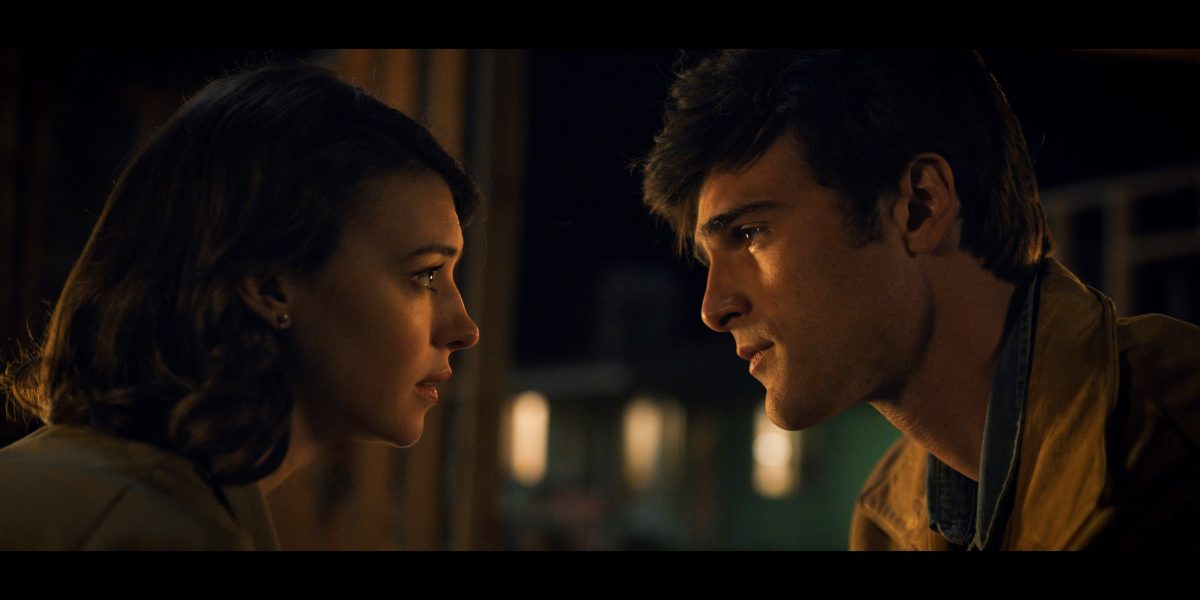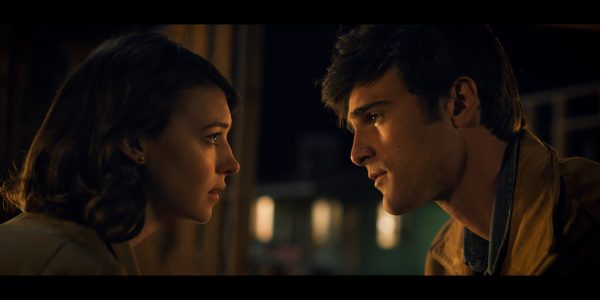“On Swift Horses” is one hot mess of a movie. With some of the most important young actors working today and some of the best production values of any film on screen, its story is lost in director Daniel Minahan and writer Bryce Kass’s adaptation of Shannon Pufahl’s book.

In this tale of love, primarily that which must not be spoken, lost dreams and misbegotten ambitions, Muriel (Daisy Edgar-Jones) marries the upright and traditional Lee (Will Poulter) whose black sheep brother Julius (Jacob Elordi) constantly upends their lives. Lee’s dream has always been to move to California, buy a house and live happily ever after. This is the 1950’s and he envisions Muriel as a obedient wife, tending the home fires while helping out with her job at a local cafe. Julius appears sporadically, having been cashiered out of the Navy for various misdeeds, usually to borrow or steal money from the duo. His avant garde and spontaneous lifestyle silently seduces Muriel, a woman constricted by what her role is supposed to be but who sees a different future for herself.
Lee plugs away at his mechanic’s job and Muriel waits tables. But one day Muriel overhears some horse racing touts discussing sure thing bets and she takes a flyer, driving to the track and betting on their choices. She wins big and continues her forays to the track, accumulating quite a bundle that she hides from her husband. They are now living his dream in the house of his choice and it’s clear she’s not fulfilled. A passing flirtation with Sandra (Sasha Calle), the woman on a nearby farm, opens her up to a different kind of longing.
Meanwhile, Julius, a gambler, less successful than he makes himself out to be, has landed a job at a Vegas casino as a security guard whose job is to spot cheaters. He falls for his co-worker, a schemer with bigger and more dangerous dreams, and comes undone. Henry has no fear and thinks nothing of putting Julius in jeopardy. Their love is cheap and sleazy and Julius is a more than willing participant.

And all this while, the cluelessly innocent Lee hums along as Muriel dabbles on the wild side at a local gay bar, Sandra has more on her mind than her eggs and Julius continues to disappoint himself and everyone else.
Certainly Minahan succeeds in illustrating how stultifying the Eisenhauer era was for women and those seeking “alternative” lifestyles but he has done so without a viable plot. Yes, Muriel is stifled by her uninteresting existence, Julius is a bad boy and Lee is the quintessential breadwinner of the mid century. There is, perhaps, more depth to Lee because he is the one upended by the brother he knows too well and the wife he knows too little. Otherwise, this is a movie told in inadvertent vignettes; inadvertent because Minahan was probably aiming for a gestalt with his characterizations and instead got the pieces that never resulted in a whole.
The cinematography by the talented Luc Montpellier is some of the most gorgeous to be seen; but possibly too beautiful for the story that is told, or maybe that’s the point. His color palette is the antithesis of the drab midcentury. The acting is excellent, but a question begs to be asked. Why, when telling this very American story, was it necessary to hire two Brits (Poulter and Edgar-Jones) and an Aussie (Elordi) as the principals? Were there no Americans available to play these roles? This is not to take away from Poulter, Edgar-Jones and Elordi, already regarded as some of the best actors of their generation, but it is insulting in its implication.
Opening April 25 at AMC Theatres including Del Amo 18 and Century City 15.









